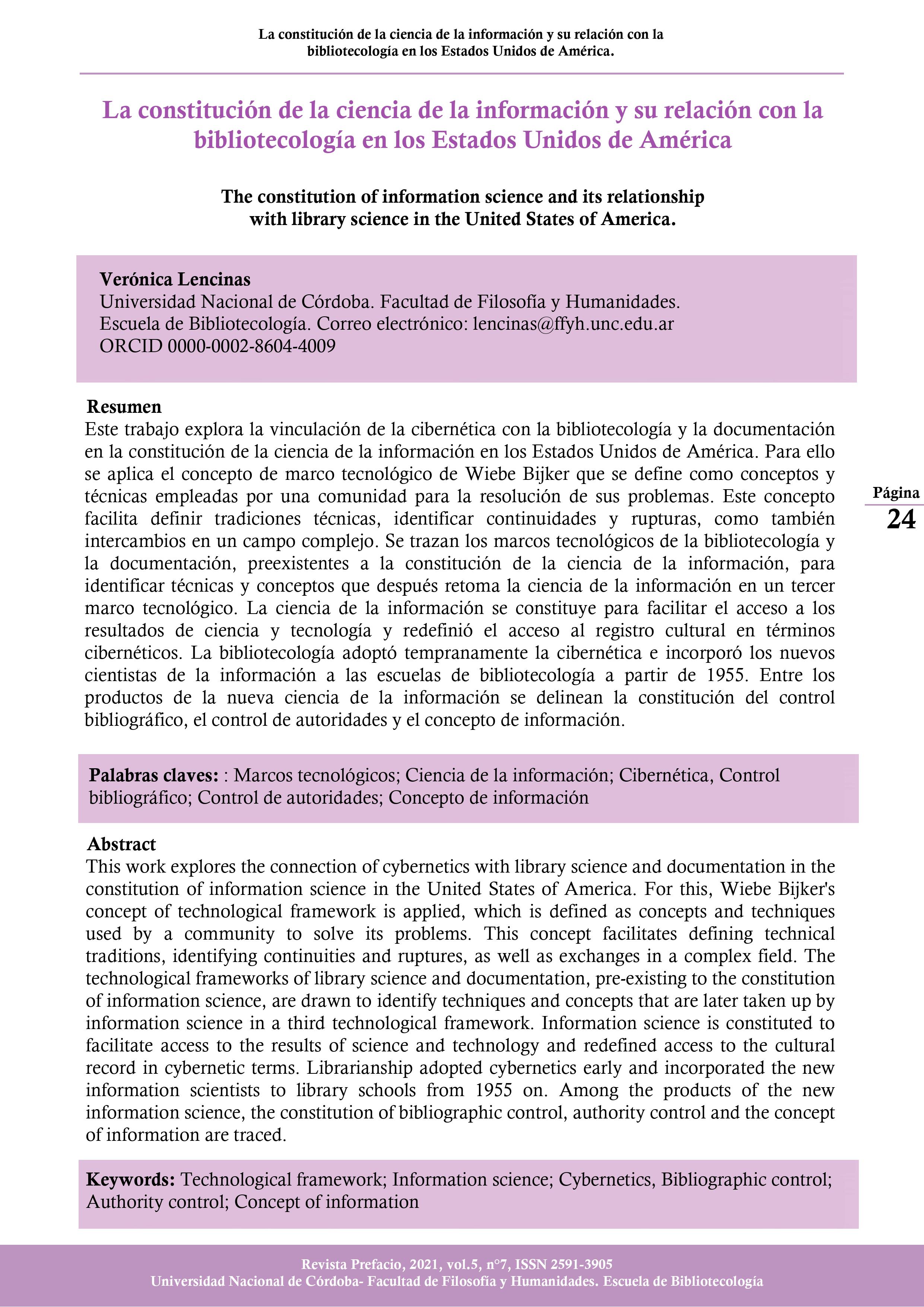The constitution of information science and its relationship with library science in the United States of America
DOI:
https://doi.org/10.58312/2591.3905.v5.n7.35724Keywords:
Technological framework, Information science, Cybernetics, Bibliographic control, Authority control, Concept of informationAbstract
This work explores the connection of cybernetics with library science and documentation in the constitution of information science in the United States of America. For this, Wiebe Bijker's concept of technological framework is applied, which is defined as concepts and techniques used by a community to solve its problems. This concept facilitates defining technical traditions, identifying continuities and ruptures, as well as exchanges in a complex field. The technological frameworks of library science and documentation, pre-existing to the constitution of information science, are drawn to identify techniques and concepts that are later taken up by information science in a third technological framework. Information science is constituted to facilitate access to the results of science and technology and redefined access to the cultural record in cybernetic terms. Librarianship adopted cybernetics early and incorporated the new information scientists to library schools from 1955 on. Among the products of the new information science, the constitution of bibliographic control, authority control and the concept of information are traced.
Downloads








